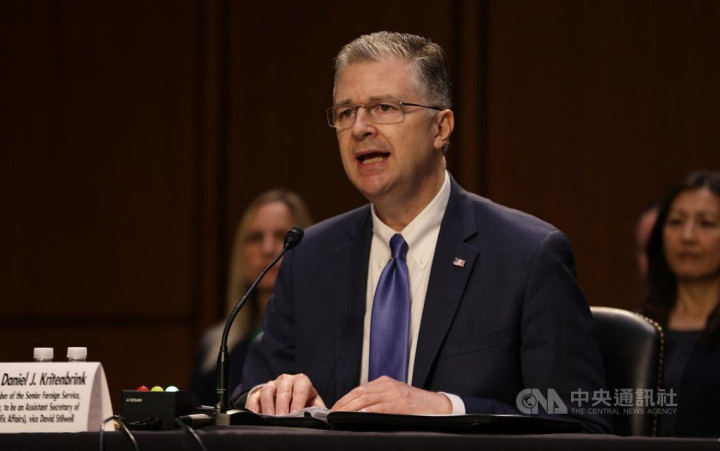
Washington, June 15 (CNA) Daniel Kritenbrink, the nominee for United States assistant secretary of state for East Asian and Pacific Affairs, said Tuesday he will work to strengthen ties with Taiwan if he is confirmed for the post.
Kritenbrink has served as U.S. Ambassador to Vietnam since 2017, and he was previously the senior director for Asian Affairs at the National Security Council and deputy chief of mission at the U.S. Embassy in Beijing.
Speaking at his confirmation hearing before the Senate Foreign Relations Committee, Kritenbrink said his top priority as assistant secretary would be to revitalize ties with allies and partners, including the "further development of our robust ties with our democratic partner, Taiwan."
He said his second priority would be the U.S.' strategic competition with China, which he described as the "biggest geopolitical test" his country faces.
The U.S. will counter China's attempts to "erode the international rules-based order" and "continue holding Chinese authorities responsible for the ongoing genocide in Xinjiang, the trampling of autonomy and civil liberties in Hong Kong, and systematic repression in Tibet," he said.
"We will bolster partners' capacity to resist PRC intimidation and oppose China's unlawful maritime claims," he said, adding that the U.S. will still work with China "when in our interests," such as on issues like the climate crisis.
At the hearing, the committee's chairman, Senator Bob Menendez, asked Kritenbrink how the U.S. can deter Chinese aggression toward Taiwan, to which Kritenbrink replied that he believed "showing strength and clarity" is key.
The U.S. has a rock-solid commitment to meet its obligations under the Taiwan Relations Act and "to provide Taiwan with the means to maintain a credible self-defense," he said.
He pledged to work hard to meet these obligations and "support further development of our very robust, unofficial relationship with our Taiwanese democratic partners," which he said was one of the most important partners the U.S. has.
In response to Menendez's question on whether he supported the policy of "strategic ambiguity" toward Taiwan and whether the U.S. needed a new framework for managing cross-strait relations, Kritenbrink said the current framework has "ensured cross-strait stability and Taiwan's security for these many decades."
The maintenance of that status quo is dynamic, however, and as "Beijing's aggressive and bullying behaviors to Taiwan grows," the U.S.' response has to be calibrated, Kritenbrink said.
"I am confident that the framework we have and meeting those obligations in the Taiwan Relations Act gives us the tools to do so," he said.